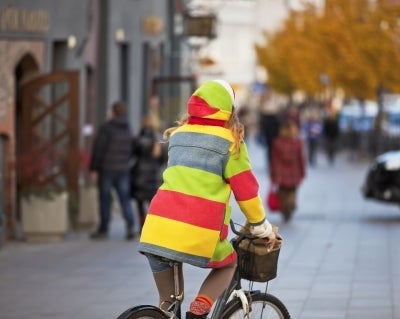Many of us know transportation is about access to jobs and housing, about economic competitiveness, convenience, quality of life and our environment. Yet our transportation system — roadways, bridges, public transit systems, sidewalks, and bike lanes — also has a profound impact on our health that we may rarely consider walking to the bus or train, walking to work or the store, or hopping on a bike to get to school can support our overall wellbeing.
For people who live close to shops, schools, churches and businesses, walking is a great option and an economic boon — but only if the route is well maintained and safe. Research shows that nearly half of us will walk up to a mile to go to church or school and 35 percent of us will walk up to a mile to get to work. Biking has seen a steady increase across the commonwealth and in Worcester, but we see it most in places that have bike lanes or other accommodations for cyclists.
Increased walking and biking can decrease the risk of costly illnesses such as diabetes, which can also save society billions in health care costs.
Improving our transportation system supports safety, economic development and a healthy environment, and can make our communities more alive and vibrant. Research shows that people who live near shops and restaurants tend to shop and eat out more often. Greater neighborhood walkability is also related to higher home property values. More non-vehicular travel also helps people with respiratory conditions. It also means safer roads for motorists.
But let’s be honest. Most don’t use public transit, lace up their sneakers, or pump bike tires because they’re concerned about health care costs or economic development. They do it because it works for their schedules, lifestyles and wallets. And for people who rely on walking or biking because they have no other choice, investing in transportation is key to their safety and wellbeing. Accessible and affordable transportation options enables Central Massachusetts residents to get to work, get loved ones to medical appointments, and make it to the grocery store.
Despite some improvements in the region, our infrastructure on the whole deteriorates each year, and regional transit systems remain underfunded. Too many streets and sidewalks are in a poor state of repair. There are more bike accommodations, but not enough. And, buses run less frequently than ideal and less often on evenings and weekends.
With increased support for public transit, walking or biking, we can support the health of our communities in every sense. Every time we opt for the car as the best way to get to work or to the store, we lose minutes of physical activity, increase harmful emissions, and increase traffic risks. For residents without access to cars, it might mean missing that medical appointment or shopping at a corner store.
To make public transit, walking, and biking attractive to all, we must invest in a 21st century transportation system. For the health of Worcester, it’s time to act.
______________
Liz Sheehan Castro is Project Manager with the Worcester Food & Active Living Policy Council. Jerry Powers is co-chair of WalkBike Worcester.

